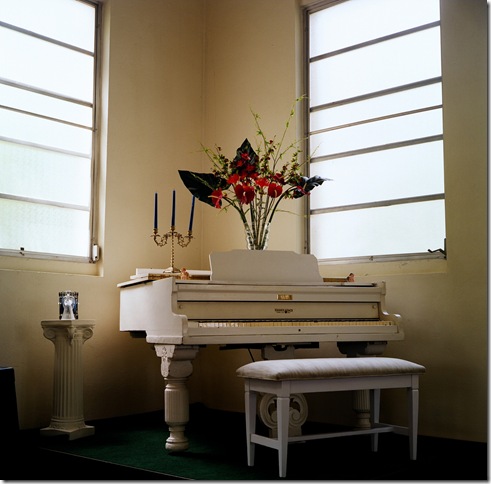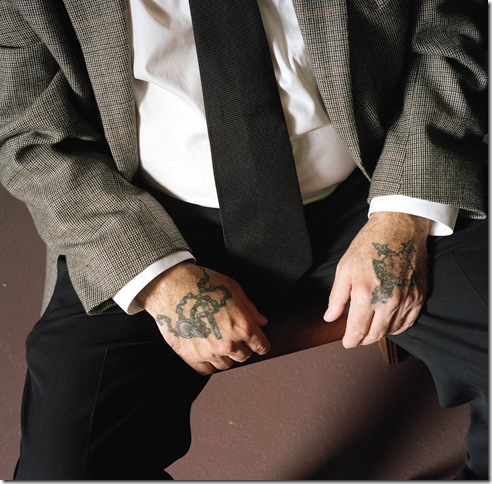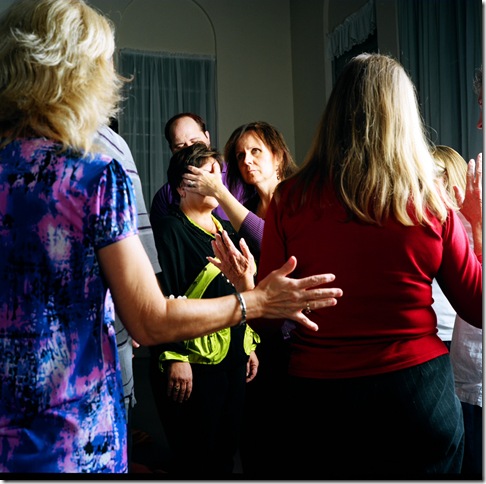The interstate is really the one road that leads to Cassadaga, I-4 to be exact, and it takes travelers from both the east and west coasts of central Florida to this small hamlet of spiritualists, mediums, psychics, and healers.
Listed on the National Register of Historic Places, this 116-year-old Volusia County community draws both believers and naysayers, those seeking answers or escape, and recently, a gifted artist whose own infatuation with magic and otherworldly realms inspired him to document Cassadaga with two vintage film cameras and an eye that lingers on what is often overlooked.
Now showing at the Art and Culture Center of Hollywood, All Roads Lead to Cassadaga presents 21 chromogenic prints made by Christiaan Lopez-Miro between 2007 and 2009, when he decided to drive from Miami to cold-call Cassadaga’s residents as subjects. The results are as unlikely as the origins of the town itself — which was founded after a New Yorker was guided to its hilly acreage by a spirit named “Seneca.”
Yes, I know what it sounds like, but here is what’s remarkable about Lopez-Miro’s photographs. They are not imbued with carnival hokey-ness or snark, or pre-ordained eeriness, or any of the approaches one might expect from such outrageous fodder. Instead, Lopez-Miro offers restraint, which is, in itself, wildly unusual for a young artist exhibiting only his second show (The first, Smoke and Mirrors, displayed portraits of L.A. magicians and was also held at the Center).
The images, then, are allowed to unfold as what they are — the mundane objects and landscapes of a people entrenched in the mystery of the unseen. And Lopez-Miro understands that what is interesting about Cassadaga is not tied to any purported evidence of the spirit world, but is, rather, rooted in the patient faith of the men and women who live there.
Aptly, the show opens with We Are One, an adage inscribed on a marble bench one might find at a gravesite, but here it rests in the yard of a clapboard house. The image was made at night, and a screen porch glows with the blue and green bulbs so often used to illuminate Florida’s hibiscus hedges and glossy shrubs. The familiarity of the setting is inclusive, as is the message carved on the front of the bench — we are experiencing a quiet, bucolic sort of evening, but we are also bound together by our mortality. All of our roads will eventually lead to the same destination, and there is ordinary beauty found along the way.
Lopez-Miro is also taken with darkness and its many gradations. His negative spaces can appear fathomless, such as in Fountain, in which a slim geyser of water rises into the air and descends on the surface of a basin. Each ripple is precisely delineated, and then dissolves into an impenetrable black. By placing the tangible alongside the unknowable, the artist threads the shadows that surround some of his portraits and still-lifes with a complexity that is at once secretive and forthcoming.
Colby Temple Healing, for example, depicts a tight circle of healers and seekers, with hands raised or laid on the afflicted; light illuminates faces and fingers but not much else of the room. All appear in a trance, yet the photograph welcomes the viewer as part of the proceedings. The image was made from the perspective of someone standing at the edge of this tightly formed gathering, where no one is looking at the camera and all are seemingly unaware of its presence.
This eyes-drifting-elsewhere trait appears in several of the artist’s subjects, and it suits their work and rituals. They are revealed as regular folk, with preferences for velour recliners, wood paneling, or plastic flowers stuffed into a nightstand vase, but Cassadagans are also listening to some off-set music the rest of us do not hear. And the distraction that appears on their faces while they are photographed, whether staged or not, perfectly depicts this.
Lopez-Miro’s aesthetics have widened. His prior show featured traditionally posed subjects, most staring directly at the camera while inhabiting the ornate sets magicians might use in their acts. This current show departs from this people-centric premise and focuses equally on the objects and interiors that charge a place with atmosphere. And there is plenty of it tucked into the modest corners of this place. Daylight films the windows on either side of a church piano, a common green vine is strung with tiny mirrors. In these photographs, a devout attention to detail transforms the quotidian into the wondrous.
Christiaan Lopez-Miro: All Roads Lead to Cassadaga runs through Feb. 20 at the Art and Culture Center of Hollywood. Also showing: Lea Nickless: Water and Oil (through Feb. 20) and Abracadabra (through Feb. 18). Hours: 10 a.m.-5 p.m. Tuesday-Friday; noon-4 p.m. Sunday. Admission is $7 for adults; $4 for students, seniors, and ages 4-17. Call 954-921-3274 or visit www.ArtandCultureCenter.org.


